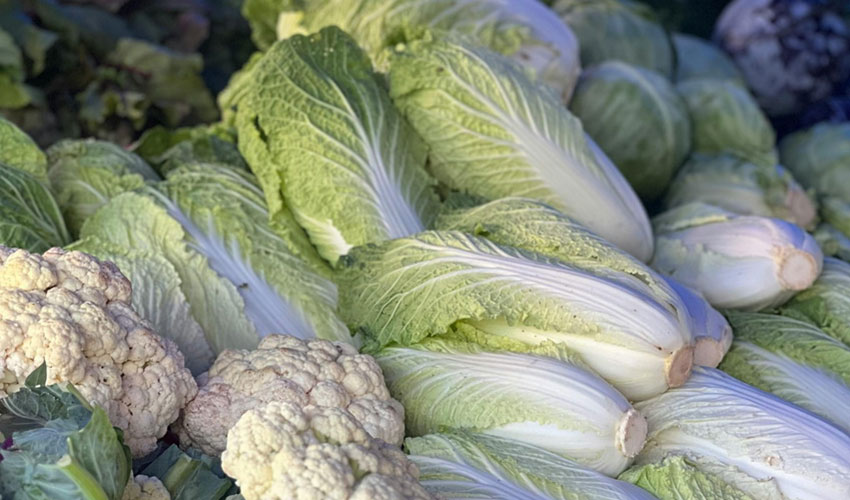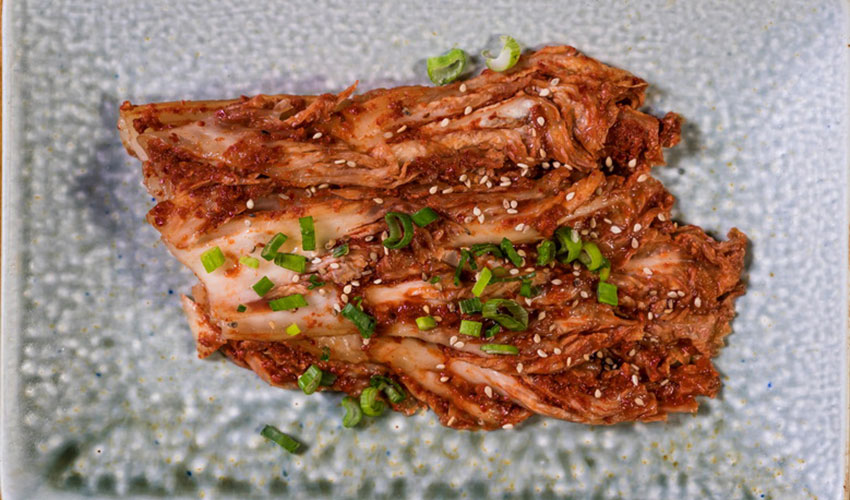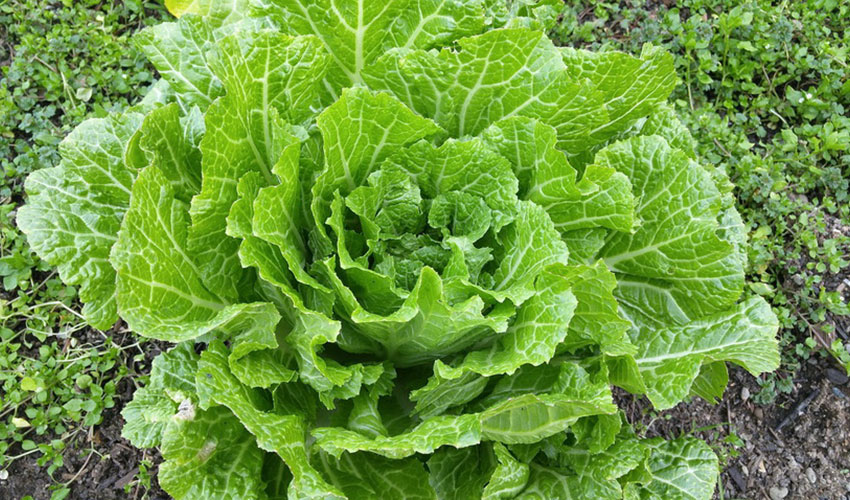Science-Backed Health Benefits of Kimchi
My wife frequently whips up a vibrant batch of Kimchi, ensuring our fridge is never without this zesty staple. By the end of this article, I'll be sharing one of her simplest, yet most delicious Kimchi recipes for you to try at home! So, keep reading. For centuries, Kimchi has stood as a foundational pillar of Korean culinary tradition, celebrated not only for its robust and vibrant flavours but also for the myriad health benefits it purportedly imparts. Once a staple confined to the kitchens of Korea, this remarkable fermented vegetable dish has recently taken the world by storm, catching the eye of researchers and food enthusiasts alike.
As scientific investigations delve deeper into its unique composition, Kimchi is steadily emerging as a powerhouse of wellness with an impressive range of health-promoting attributes. Join us as we uncover ten compelling, science-backed healing properties of Kimchi, an iconic symbol of Korean cuisine that has earned its rightful place in the pantheon of super-foods. This alluring blend of history, culture, and nutrition not only tantalises the taste buds but also enriches overall well-being, making it an indispensable addition to any diet. Prepare to be inspired as we explore the remarkable benefits that this vibrant dish brings to the table, both nutritionally and holistically. Oh, and if Kimchi isn't your thing, don't worry! Sauerkraut offers a fantastic alternative, delivering similar health benefits. Both are fermented treasures packed with probiotics, making them excellent choices for gut health and overall well-being. But in this article we’ll focus on Kimchi only.

Promotes Digestive Health: At its essence, Kimchi serves as a vibrant probiotic powerhouse, teeming with life-enhancing benefits. The fermentation process amplifies its potency, cultivating an ideal habitat for beneficial bacteria, especially lactic acid bacteria (LAB). These probiotics play a vital role in nurturing a balanced gut microbiome, essential for optimal digestive health. In fact, a study featured in the Journal of Medicinal Food revealed that indulging in Kimchi can significantly enhance gut microbiota diversity, paving the way for improved digestive function and overall gut wellness. Savouring kimchi isn't just a culinary delight as it can be a delicious step toward a healthier you!
Helps Weight Management: As the world grapples with a burgeoning obesity crisis, fermented Kimchi has surfaced as an ally in the struggle for effective weight management. Recent findings from a pivotal human study published in the esteemed journal Nutrition Research provide encouraging evidence of Kimchi's benefits. Participants who incorporated this traditional fermented dish into their diets experienced noteworthy reductions in key health indicators, including body weight, body mass index (BMI), and waist circumference. For people facing the challenges of being overweight or obese, these results shine a light on Kimchi not just as a flavourful culinary staple, but as a potential game-changer in the journey towards healthier living. As more people seek out natural and effective strategies for weight management, Kimchi’s unique properties may offer a delicious and nutritious pathway to achieving their goals.
Enhance Immune Function: Kimchi serves as a powerhouse for both digestion and immune support. The probiotics found in this fermented delight are not merely beneficial for your gut health; they possess crucial properties that bolster the immune system. In a noteworthy study published in the Journal of Microbiology and Biotechnology, researchers unveiled the remarkable capabilities of Lactobacillus plantarum, a specific strain of bacteria isolated from Kimchi. Findings revealed that this probiotic not only aids in digestion but also significantly enhances immune function. It does so by stimulating the production of vital immune cells and cytokines, which are substances that play a fundamental role in your body's defence mechanisms. This remarkable revelation highlights the diverse advantages of incorporating Kimchi into your daily meals. By fostering a healthy gut microbiome, you not only enhance your digestive well-being but also empower your immune system to effectively combat a range of illnesses. Embracing Kimchi isn't just about savouring its unique, tangy flavour. It's about nurturing your body from the inside out, promoting holistic health that can elevate your overall vitality. In doing so, you create a fortified defence against pathogens, all while enjoying a centuries-old culinary tradition that harmonises taste and wellness.

Antioxidant Properties: Oxidative stress is a critical factor in the process of ageing and is intricately linked to a range of chronic diseases that affect our health as we grow older. This imbalance between free radicals and antioxidants in our body accelerates cellular damage, contributing to the decline in our overall well-being. However, there is a beacon of hope in the form of Kimchi Rich in vibrant vegetables and enhanced through the art of fermentation, Kimchi is a powerhouse of antioxidants. These natural compounds work diligently to neutralise harmful free radicals, thereby mitigating the detrimental effects of oxidative stress. Recent studies in Food Science and Biotechnology have shed light on the remarkable antioxidant capabilities inherent in Kimchi extracts. These findings affirm Kimchi's role as a formidable ally in the fight against oxidative damage, potentially staving off the ravages of time and chronic illness. Incorporating Kimchi into your diet can be a proactive step towards fostering better health and longevity. As ongoing research continues to unveil the depths of its health-promoting properties, Kimchi stands out as a delicious and functional food that embodies the perfect fusion of tradition and science.
Anti-Inflammatory Properties: Chronic inflammation has emerged as a silent yet potent contributor to a multitude of modern health issues, serving as a common thread connecting everything from heart disease to autoimmune disorders. In the quest for effective solutions to combat this pervasive problem, kimchi shines brightly as a beacon of hope. Renowned not just for its taste but for its impressive health benefits, Kimchi is increasingly being recognised for its remarkable anti-inflammatory properties. Research highlighted in the esteemed Journal of Medicinal Food has brought to light compelling evidence that the bioactive compounds found in Kimchi possess the ability to inhibit the activity of pro-inflammatory mediators. This discovery paves the way for Kimchi to be classified as a functional food that goes beyond mere nutrition, potentially offering a proactive approach to managing inflammation-related ailments. As we delve deeper into the intersections of diet, health, and well-being, Kimchi stands out as an empowering ally in our fight against the chronic inflammation that underlies many of the health challenges we face today.
Supports a Healthy Heart: Kimchi emerges as a promising ally in the fight against heart disease. A recent study published in the Journal of Medicinal Food reveals that a key compound found in Kimchi possesses remarkable properties that may inhibit the development of aortic plaques, which are significant contributors to the progression of atherosclerosis. This discovery not only highlights the potential of traditional foods in enhancing cardiovascular health but also paves the way for new nutritional strategies aimed at reducing the prevalence of heart-related ailments.

May Provide Cancer-Fighting Potential: Although further research is essential, preliminary studies have unveiled intriguing insights into the potential cancer-fighting properties of Kimchi. A comprehensive review published in the Journal of Ethnic Foods has showcased various investigations that underscore the promising anti-carcinogenic effects of Kimchi and its bioactive compounds. Notably, these studies point to a significant impact on colon cancer cells, suggesting that the unique ingredients and fermentation process of this traditional dish may contribute to its ability to combat cancer. As science delves deeper into the health benefits of Kimchi, the findings inspire hope that this flavourful staple could play a role in cancer prevention and treatment strategies.
Skin Health Benefits: Recent investigations are shedding light on the remarkable potential of Kimchi for skin health. A fascinating study featured in the esteemed Journal of Medicinal Food has unveiled intriguing findings that could redefine our understanding of fermented foods. Researchers discovered that Lactobacillus plantarum, a beneficial bacterium isolated from Kimchi, demonstrated promising effects in reducing symptoms akin to atopic dermatitis in mouse models. This compelling evidence points to the possibility that Kimchi could play a vital role in enhancing skin wellness, suggesting a fascinating intersection of nutrition and dermatological health that warrants further exploration. As the tide turns towards natural remedies and probiotics, this ancient food could be poised to revolutionise skincare routines and promote healthier skin from within.
May Bolster Cognitive Function: As the world grapples with an increasingly ageing population, the quest to preserve cognitive health has never been more crucial. Recent research featured in the esteemed journal Nutrients offers a fascinating glimpse into a potential hero in this fight: Kimchi may harbour bioactive compounds that can bolster cognitive function and enhance memory. The study highlights the promising possibility that these compounds could mitigate the detrimental effects of amyloid beta, a protein closely linked to the onset and progression of Alzheimer’s disease. With the stakes higher than ever, the discovery invites exciting discussions about the intersection of nutrition, cultural cuisine, and brain health, underscoring how our dietary choices could play a pivotal role in supporting our mental faculties as we age.
Provides Antimicrobial Benefits: As we navigate an alarming rise in antibiotic resistance, the spotlight is increasingly cast upon the remarkable attributes of traditional foods, with Kimchi emerging as a particularly fascinating contender. This beloved fermented dish houses an array of natural antimicrobial properties that warrant our attention. Recent research underscores the potential of Kimchi as a powerful ally in the battle against harmful pathogens. It has been discovered that certain strains of lactic acid bacteria, those tiny but mighty microorganisms that thrive in this Korean staple, exhibit the ability to effectively inhibit the proliferation of notorious bacteria such as Staphylococcus aureus and Listeria monocytogenes. These pathogens, often responsible for serious foodborne illnesses, pose a significant threat to public health, making the elucidation of effective, natural alternatives to antibiotics all the more urgent. In an age where traditional antibiotics are losing their efficacy, the innovative properties of Kimchi remind us that nature often holds the keys to solving some of our most critical health challenges.

The Science Behind Kimchi’s Super-Food Status
What elevates Kimchi to the pinnacle of health foods? The secret lies in its remarkable blend of ingredients and the intricate fermentation process that transforms these components into a nutritional powerhouse. At the heart of most Kimchi recipes is cabbage, a vegetable renowned for its abundance of vitamins, minerals, and antioxidants. But Kimchi is more than just cabbage; it's a testament to the art of fermentation that not only preserves these nutrients but also unlocks a treasure trove of new health-promoting compounds. Through fermentation, beneficial lactic acid bacteria feast on the natural sugars and carbohydrates present in the cabbage. This delightful microbial activity produces lactic acid, bestowing Kimchi with its signature tangy flavour. Yet the magic doesn't stop there. This complex biochemical process generates an array of bioactive compounds ranging from peptides and vitamins to organic acids, which all contribute to the multifaceted health benefits of Kimchi.
But Kimchi’s impressive health credentials don’t solely rest on cabbage. The ensemble of ingredients typically found in this dish plays a vital role in its nutritional benefits. Garlic, for example, is a celebrated super-food with well-established cardiovascular advantages, helping to maintain heart health and cholesterol levels. Meanwhile, ginger is a powerhouse of anti-inflammatory properties, known for alleviating symptoms of nausea and promoting digestive health. Moreover, the cabbage used in Kimchi belongs to the cruciferous family of vegetables, which are lauded for their health benefits. Cruciferous vegetables contain precursors to a remarkable compound known as sulphoraphane, a substance that has piqued the interest of scientists for its potential therapeutic effects. In fact, there are more than 600 scientific studies highlighting sulphoraphane’s possible benefits across more than 300 health conditions. While further research is warranted to fully comprehend the impact of fermentation on sulphoraphane levels in Kimchi, the presence of this compound adds yet another layer to the impressive health profile of this fermented delicacy.
In a nutshell, the potent health benefits of Kimchi are not merely a result of its individual ingredients but a harmonious interplay of nutrients enhanced by the transformative power of fermentation. This vibrant dish is not just a staple of Korean cuisine; it's a global symbol of wellness that stands as a shining example of how traditional food practices can lead to remarkable health outcomes.
Making Kimchi
In our contemporary society, where the battle against an array of health challenges seems to escalate daily, there lies a remarkable opportunity in the exploration of whole food sources rich in probiotics and essential nutrients. Among these, Kimchi stands out as an emblem of this potential, inviting us to delve into its depths and discover the profound benefits it offers. By harmonising time-honoured culinary traditions with the latest advancements in nutritional science, we may unearth formidable allies in our quest for better health and effective disease prevention, all encapsulated in recipes that have sustained and enriched communities across generations. The art of making Kimchi is not just about creating a delicious dish; it is a gratifying journey into the world of fermentation. This age-old process transforms simple vegetables, primarily napa cabbage, a versatile variety of Chinese cabbage well-suited to the UK climate, and crisp, crunchy radishes into a vibrant, tangy staple. The magic happens as these ingredients undergo fermentation with a blend of spices and seasonings, developing complex flavours alongside a host of probiotics that can bolster our well-being.
Are you prepared to dive into a delightful journey of flavours and health with me? I'm excited to share my wife’s simple yet incredibly satisfying recipe for making your own napa cabbage Kimchi. This isn’t just about food; it’s about immersing yourself in a rich tradition that’s packed with nutrition and wellness benefits. This cherished recipe comes to us from a dear friend of my wife, who spent four enriching years in South Korea. It embodies the essence of authentic Kimchi, allowing you to recreate a beloved staple that has nourished generations. As you chop, mix, and ferment, you will not only discover the joy of crafting something truly delicious, but you’ll also unlock a treasure trove of health advantages associated with this vibrant dish. So gear up for an exciting culinary quest that will tantalise your taste buds and uplift your spirit! Your kitchen will become a vibrant hub of activity, echoing with the age-old techniques that transform humble ingredients into a sensational, probiotic-rich masterpiece. Let's get started on this adventure together!

Ingredients:
For the Kimchi base:
- 1 Big Napa Cabbage
- 0.5 cup of Ancient Purity Celtic Sea Salt
- Pure Water (for soaking)
For the spice paste:
- 1 tablespoon grated ginger
- 1 tablespoon minced garlic (about 5-6 cloves)
- 1 to 5 tablespoons Korean red pepper flakes (gochugaru), to taste (adjust based on your spice preference)
- 2 tablespoons fish sauce (or soy sauce for a vegan option)
- 1 teaspoon sugar
- 2-3 green onions, chopped
- 1 medium carrot, julienned (optional)
Instructions:
Prepare the Cabbage:
Quarter the napa cabbage lengthwise and discard the core. Then, slice the quarters into bite-sized pieces. In a large bowl, mix sea salt with enough water to fully submerge the cabbage. Place the cabbage into the saltwater solution and let it soak for 1 to 2 hours, turning it occasionally for even salting. The cabbage should become wilted while still maintaining a bit of crunch.
Make the Spice Paste:
In a mixing bowl, combine the grated ginger, minced garlic, gochugaru (adjust according to your preferred spice level), fish sauce, and sugar. Stir until you form a paste, adding a bit of filtered water if necessary to achieve the right consistency. Taste and adjust the seasoning as needed.
Rinse the Cabbage:
After soaking, rinse the cabbage under cold running water to remove excess salt. Drain well.
Combine Ingredients:
Mix the drained cabbage, spice paste, chopped green onions, and julienned carrot in a large bowl. Use gloves to prevent skin irritation and use your hands to thoroughly coat the vegetables in the spice mixture.
Pack the Kimchi:
Move the mixture into a fresh, sterilised jar or container. Press it firmly to eliminate any air pockets, while ensuring some room at the top for the Kimchi to grow as it ferments.
Ferment:
Cover the container with a lid, making sure not to seal it too tightly to allow gas to escape. Let it ferment at room temperature for 1 to 5 days, adjusting the time based on your desired taste. Feel free to taste it each day, and once it reaches your preferred level of fermentation, store it in the refrigerator.
Store:
After fermenting to your liking, store Kimchi in the refrigerator. It can be kept for several weeks and will mature slowly, enhancing its flavour.
Enjoy!!
''Wild foods, microbial cultures included, possess a great, unmediated life force, which can help us adapt to shifting conditions and lower our susceptibility to disease. These microorganisms are everywhere, and the techniques for fermenting with them are simple and flexible.'' - Sandor Katz






















